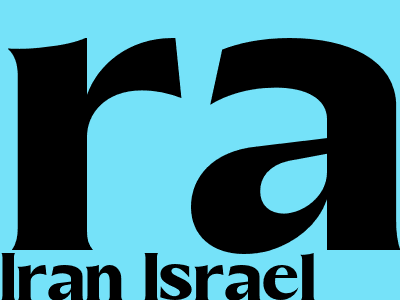
Important Considerations for Promoting Iranian-Israeli Relations
Growing Tensions in the Middle East: Iran and Israel at Odds
Tensions between Iran and Israel have been escalating for decades, fueled by geopolitical conflicts, religious differences, and territorial disputes. These tensions have impacted regional and global stability, making it crucial to address the underlying causes and explore avenues for reconciliation.
This article delves into the complexities of the Iranian-Israeli conflict, examining historical grievances, current diplomatic standoffs, and the potential consequences of further escalation. We will also analyze the role of international diplomacy, peace negotiations, and the impact of external powers on the conflict.
Historical Roots of the Iran-Israel Conflict
1. The 1979 Revolution and Diplomatic Break
The Iranian Revolution in 1979 marked a turning point in relations between Iran and Israel. The new Iranian government led by Ayatollah Khomeini severed diplomatic ties with Israel, declaring it an "illegal entity."
This diplomatic break laid the foundation for decades of mistrust and hostility, as Iran adopted an anti-Israel stance and supported groups opposed to the Israeli government.
2. The Iran-Iraq War and Israeli Support for Iraq
During the Iran-Iraq War from 1980 to 1988, Israel provided military and financial support to Iraq, which further strained relations with Iran. This support was seen as a betrayal by Iran, reinforcing their view of Israel as an enemy.
3. Iran's Nuclear Program and Israeli Security Concerns
Iran's nuclear program has been a major source of tension with Israel. Israel believes Iran's nuclear ambitions pose a threat to its security and the stability of the Middle East.
Iran maintains that its nuclear program is for peaceful purposes, but Israel has expressed skepticism and has taken military action to prevent Iran from developing nuclear weapons.
Diplomatic Standoffs and Escalating Hostilities
1. The 2009 Israeli Offensive in Gaza
Israel's offensive in Gaza in 2009, known as Operation Cast Lead, resulted in hundreds of Palestinian casualties and further deteriorated relations with Iran.
Iran condemned the offensive and accused Israel of war crimes, escalating tensions and deepening the divide between the two countries.
2. The Assassination of Iranian Nuclear Scientists
Between 2010 and 2012, several Iranian nuclear scientists were assassinated in targeted attacks. Iran accused Israel of being behind these assassinations, further fueling resentment and mistrust.
These assassinations were seen as an attempt to sabotage Iran's nuclear program and undermine its scientific capabilities.
3. The 2015 Nuclear Deal and its Collapse
The Joint Comprehensive Plan of Action (JCPOA), commonly known as the Iran nuclear deal, was signed in 2015 between Iran and world powers, including the United States.
The deal aimed to curb Iran's nuclear program in exchange for sanctions relief. However, the deal collapsed in 2018 when the United States withdrew and re-imposed sanctions on Iran.
The collapse of the nuclear deal has heightened tensions and increased the risk of military confrontation between Iran and Israel.
The Role of International Diplomacy and External Powers
- The United States has played a significant role in the Iran-Israel conflict, supporting Israel and exerting pressure on Iran.
- Russia and China have also been involved in diplomatic efforts and have sought to maintain relations with both Iran and Israel.
- The European Union has also been involved in mediation efforts and has urged both sides to engage in dialogue.
External powers have their own interests and agendas in the Middle East, which can complicate efforts to resolve the Iran-Israel conflict.
Prospects for Peace and Reconciliation
Despite the long-standing tensions and diplomatic break, there have been some efforts at peace and reconciliation over the years.
In 2015, Iran and Israel participated in secret talks in Oman, but no significant progress was made.
In recent years, there have been calls from some quarters for a regional security dialogue that would include Iran and Israel, but these proposals have not gained traction.
The prospects for peace and reconciliation between Iran and Israel remain uncertain. Deep-seated mistrust and unresolved grievances continue to hamper diplomatic efforts.
Conclusion
The conflict between Iran and Israel is a complex and multifaceted issue with historical, geopolitical, and religious dimensions. The consequences of further escalation are potentially devastating, not only for the two countries involved but also for the wider Middle East and beyond.
It is essential for all parties involved to engage in genuine dialogue, address the underlying causes of the conflict, and work towards a peaceful and just resolution that ensures the security and stability of the region.